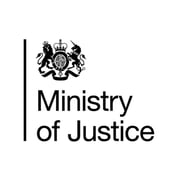Empowering MoJ’s technology future – a strategic partnership embedding the target operating model


Challenge
Following the successful completion of the initial Prisons Technology Transformation Programme (PTTP), the Ministry of Justice (MoJ) embarked on a new phase - End User Compute Services (EUCS) - aimed at embedding a sustainable Target Operating Model (TOM) and transitioning operations to Business as Usual (BAU).
This shift brought several key challenges. The MoJ needed to design and implement a TOM that aligned with its long-term strategic goals, all while bridging critical resource gaps caused by ongoing permanent recruitment. Maintaining delivery momentum was essential to avoid disruption to operational services, and ensuring effective knowledge transfer was vital for building internal capability. Additionally, the programme required a seamless handover from interim to permanent staff to preserve continuity and institutional knowledge.
To support this complex transition, the MoJ turned to Methods, its trusted delivery partner since 2019, leveraging their deep domain knowledge, proven delivery track record, and flexible resource model.
Solution
Methods delivered a tailored, phased support model, deploying around 65 specialist resources with the expertise required to support the implementation of the TOM and the MoJ's transition to EUCS BAU.
Key elements of the solution included:
Specialist resource provision
High-quality, skilled specialists were rapidly deployed to keep critical initiatives on track throughout the design and implementation phases.
Blended role design
Interim professionals were placed in blended roles that combined hands-on delivery with mentoring and upskilling of MoJ civil servants.
BAU stabilisation
Methods played a key role in stabilising the delivery environment, ensuring seamless operational continuity throughout the transition to BAU.
Knowledge transfer and mentoring
Consultants worked closely with permanent staff to facilitate structured handovers and continuous knowledge transfer, embedding skills across the organisation.
Bridging gaps during recruitment
Where civil servant roles were unfilled, Methods provided interim support to prevent delays and ensure service delivery continued without knowledge or capability gaps.
Strategic partnership approach
Methods operated not merely as a supplier, but as a trusted strategic partner - adapting flexibly to evolving needs and focusing on long-term, sustainable outcomes.
Impact
Methods played a pivotal role in enabling the MoJ to transition seamlessly from a high-impact transformation programme to a stable, self-sufficient BAU environment. By embedding the TOM across the organisation, operations continued without disruption, ensuring continuity of critical services.
Through structured knowledge transfer and mentoring, permanent staff were upskilled and empowered to take ownership of delivery, strengthening internal capabilities and reducing long-term reliance on external contractors. As civil servant roles were filled, Methods specialists were gradually phased out in alignment with TOM goals – supporting a sustainable operating model and reducing contractor dependency.
This strategic, partnership-led approach not only stabalised the delivery environment but also reinforced organisational resilience. By building internal capacity and focusing on long-term outcomes, the engagement supported the MoJ’s commitment to a modern, robust, and future-ready technology function.
“Methods has been pivotal in supporting the MOJ during its transition to an in-house End User Compute function. They provided specialist skilled resources that ensured critical services were managed effectively, ensuring there was no impact to critical business operations across the MoJ, including prisons, probations, and courts.
By embedding experienced professionals, Methods has facilitated a smooth transition, maintaining service continuity and actively engaging in knowledge transfer and mentoring, building long-term capabilities within the MOJ. Additionally, Methods has bridged gaps during permanent recruitment processes, ensuring seamless handovers and minimising knowledge loss.
Their adaptability and partnership approach have made them a strategic ally in achieving sustainable outcomes through skills transfer and capacity development.”
Stephen Harper
Service Owner - End User Services